Can You Insulate The Walls Of A Finished Fort Collins Home?
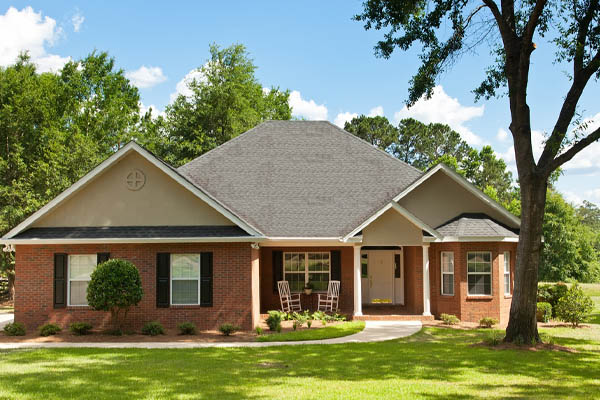
So you just bought a home, and it turns out it doesn’t come with insulation, or the insulation layer is not enough for ideal temperature regulation. This is not uncommon, especially if you are buying an older home where the insulation may be outdated and will need to be replaced. At this point, you should consider adding insulation to exterior walls.
Read on to this Ascend Construction article to know how you can insulate the walls of an existing and finished home.
When To Insulate The Walls Of An Existing Home In Colorado
Contents
- When To Insulate The Walls Of An Existing Home In Colorado
- Insulating A Finished House: How Is It Done?
- Why You Need to Work with a Professional Fort Collins Insulation Contractor
- Wall Insulation Frequently Asked Questions
- How Much Does It Cost to Insulate the Walls of an Existing Home?
- Will Adding Insulation to Finished Walls Damage My Home’s Interior?
- What Type of Insulation Is Best for a Finished Home?
- Can Wall Insulation Improve Indoor Air Quality?
- How Long Does It Take to Insulate an Existing Home?
- Does Wall Insulation Help with Noise Reduction?
- Conclusion
- Trust Ascend Construction for Expert Insulation Services in Fort Collins, Colorado

There are a couple of instances where you need to install insulation into an existing house. You may not be satisfied with the insulation installed in your newly-built home. You may have an older house that has insulation installed, but it is outdated. The right insulation can also increase the value of any property, something to keep in mind if you plan to sell your home down the road.
You may also want to add insulation to increase energy efficiency, improve indoor air quality, and maintain the best indoor temperatures in your house. Thankfully, you can go back and add insulation in these instances for optimum temperature regulation and comfort.
Seal in Comfort, Save on Energy: Ascend Construction provides expert insulation services to keep your home cozy and efficient. Contact us today!
Insulating A Finished House: How Is It Done?
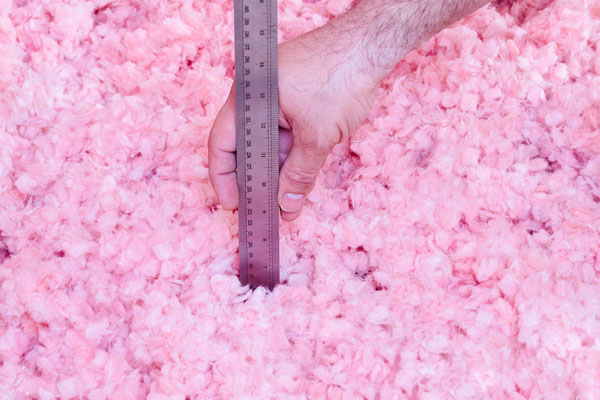
Wood or Drywall Walls
For wood or drywall walls, spray foam insulation is the easiest method. Your insulation contractor will find the studs in the walls, mark them, and drill 2-inch holes near the top of the wall between all the studs.
Insulation is sprayed into the wall cavity through these holes. Spray foam and loose-fill insulation are both good options for this procedure. Your insulation team may advise you to stick with the same type of insulation that is already in use in the house. For example, if you already have loose-fill insulation in the walls, it makes sense to just add in more loose-fill insulation made of fiberglass or cellulose. Loose-fill insulation can be blown in through these holes as easily as spray foam insulation. Once all the insulation is in, the holes are plugged, and that portion is refinished to match the rest of the wall.
Outdated Insulation? We’ve Got You Covered! Upgrade to high-performance insulation with Ascend Construction for a more comfortable and cost-effective home. Call now!
Siding Walls
The same method is done if you have siding walls, long panels of wood, or any other material that lines the outside of the house. Your contractor simply removes the siding from the outside, bores holes at the top of the walls, and injects insulation through the walls.
Once done, the holes are plugged using wooden plugs, and the siding is replaced. In many cases, this is a more efficient job compared to boring holes through actual walls, and there will be no traces of the process when the siding is back in place.
Brick Walls
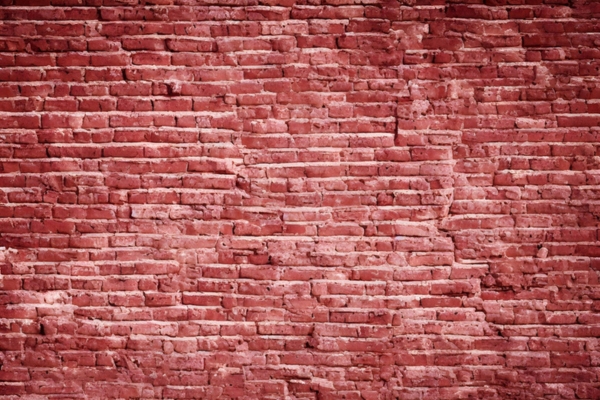
Brick walls have natural insulating properties, but these may not be enough for certain temperatures and weather conditions. Adding another layer of insulation is a good idea, especially since you have a couple of options for insulating finished brick walls.
Stop Drafts & Heat Loss for Good: Let Ascend Construction improve your home’s insulation and reduce your energy bills. Schedule your service today!
Adding Insulation To Exterior Brick Walls
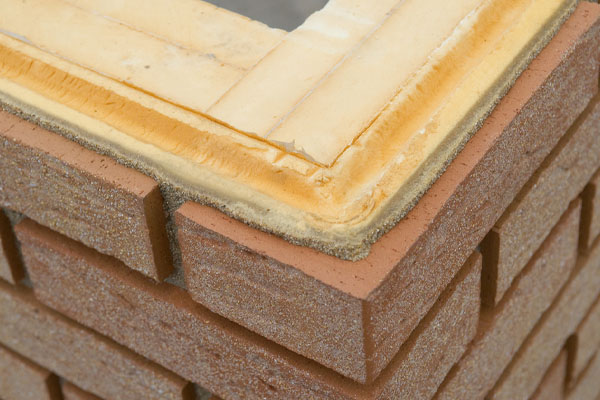
Insulation is either added to the interior portion or the external walls. For the latter, your contractor will apply insulation to the outside brickwork, which is later covered with a plaster-like layer. You can also opt for cladding once the insulation has been applied, although this will eliminate the nice brickwork effect that you may want to retain in the exterior of your house.
Adding Insulation To Interior Brick Walls
For internal insulation, your contractor can install insulation boards to the interior walls. An alternative is to have a stud wall built over the existing indoor wall and fill this with insulating material.
If you want to retain your beautiful brickwork exterior, you can use spray foam insulation drilled into the mortar. The contractor will drill holes along the mortar joints, the corners where each brick meets the mortar. These holes are drilled along the bottom, middle, and top portions of your wall. Once the insulation is injected, mortar is again injected to plug the holes.
Why You Need to Work with a Professional Fort Collins Insulation Contractor
Once you determine that your house needs insulation or an insulation upgrade, the first step is to call the pros. This is because insulating existing or finished properties are naturally more complicated than adding insulation during the construction phase. Professional teams know how to retrofit insulation into an existing wall and ensure that insulation is applied properly so that it does the work it is supposed to do.
Insulation That Works Year-Round: Enjoy consistent indoor temperatures with Ascend Construction’s professional insulation solutions. Get your free estimate now!
Wall Finishes Require Different Insulation Methods
You also need to deal with different kinds of wall finishes that require different insulation methods. You want to ensure a professional job with installing insulation to avoid the most common problems that come with incorrect installation.
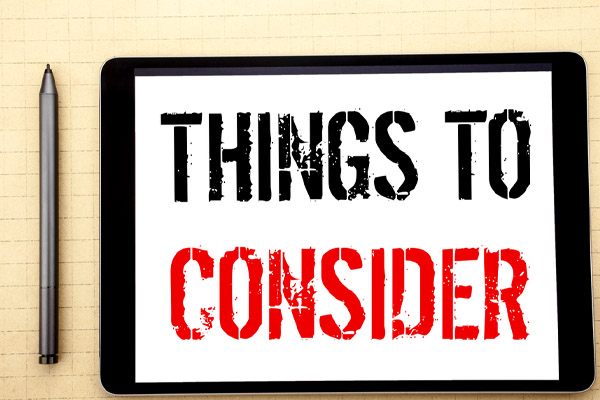
Common problems that can occur if your insulation is not properly installed include:
- drafts in the house
- cold spots in rooms
- moisture in crawl spaces that could lead to molds and mildew
- reduced energy efficiency
- added workload to your HVAC system to keep temperatures warm or cool
- the added cost of a re-do
Aside from different methods required for different kinds of walls and finishes in the house, you will also need specialized equipment to drill or inject insulation in the right places. Otherwise, you can destroy plumbing or electrical work when DIY-ing insulation by yourself.
Better Insulation, Better Living: Ascend Construction enhances your home’s comfort and efficiency with top-quality insulation. Don’t wait—call us today!
Wall Insulation Frequently Asked Questions

How Much Does It Cost to Insulate the Walls of an Existing Home?
The cost of insulating a finished home varies based on factors such as the size of the home, the type of insulation used, and the complexity of the installation. Spray foam insulation tends to be more expensive than loose-fill fiberglass or cellulose, but it provides superior air sealing.
Additionally, homes with brick walls or intricate finishes may require more labor-intensive installation, which can increase costs. Homeowners should request a quote from a professional insulation contractor to get an accurate estimate.
Will Adding Insulation to Finished Walls Damage My Home’s Interior?
When done by professionals, retrofitting insulation into existing walls causes minimal disruption to a home’s interior. Contractors use small drill holes, typically around 2 inches in diameter, to inject insulation into the wall cavities.
These holes are then carefully sealed and refinished to match the existing walls. For homes with siding, the process is even less intrusive since insulation can be installed from the exterior without affecting interior walls.
What Type of Insulation Is Best for a Finished Home?
The best type of insulation for a finished home depends on the existing wall structure and homeowner preferences. Spray foam is excellent for sealing air leaks and providing high R-value insulation. Loose-fill fiberglass or cellulose is a cost-effective and efficient option for filling wall cavities. For brick homes, insulation boards or cladding may be used on interior or exterior walls. A professional insulation contractor can assess the home’s structure and recommend the most suitable insulation type.
Smart Insulation Solutions for Fort Collins Homes: Keep your home warm in the winter and cool in the summer with expert insulation from Ascend Construction. Book your appointment now!
Can Wall Insulation Improve Indoor Air Quality?
Yes, properly installed wall insulation can significantly improve indoor air quality by reducing drafts, sealing gaps where outdoor pollutants can enter, and preventing moisture buildup that could lead to mold growth. Spray foam insulation, in particular, acts as an air barrier, reducing the infiltration of dust, allergens, and outdoor pollutants. This is especially beneficial for homeowners with respiratory conditions such as asthma or allergies.
How Long Does It Take to Insulate an Existing Home?
The timeline for insulating a finished home depends on the size of the property and the insulation method used. Most retrofitting projects can be completed in one to three days. Insulating drywall or wood walls with spray foam or loose-fill insulation is typically quicker, while insulating brick walls—especially if adding exterior cladding—may take longer. A professional insulation contractor can provide a more accurate timeline based on the scope of the project.
Does Wall Insulation Help with Noise Reduction?
Yes, adding insulation to existing walls can improve soundproofing by reducing noise transmission between rooms and from outside. Materials like spray foam and dense-packed cellulose are particularly effective at dampening sound vibrations. Homeowners who live near busy roads or in noisy neighborhoods can benefit from added wall insulation to create a quieter indoor environment.
Conclusion
Adding insulation to the walls of a finished home is a smart investment that enhances energy efficiency, improves indoor comfort, and increases property value. Whether your home has drywall, siding, or brick walls, there are effective methods to retrofit insulation without major disruptions to your living space. Professional installation ensures that insulation is applied correctly, preventing issues like drafts, moisture buildup, and unnecessary strain on your HVAC system.
By choosing the right insulation type and working with an experienced contractor, you can create a well-insulated home that stays comfortable year-round while reducing energy costs. If your Fort Collins home lacks sufficient insulation, now is the perfect time to upgrade and enjoy the long-term benefits of a properly insulated home.
Trust Ascend Construction for Expert Insulation Services in Fort Collins, Colorado
For air sealing and insulation upgrades, you need a contractor who combines expertise with affordability. Ascend Construction is a trusted industry leader, providing high-quality, customized insulation solutions to enhance your home’s comfort and efficiency.
Our services include professional insulation removal and installation, air sealing, energy audits, energy conservation solutions, and whole-house fan installations—ensuring your home stays comfortable year-round.
Choose Ascend Construction for top-tier service, unmatched reliability, and superior workmanship. Contact us today to schedule your consultation!

Contact Ascend Construction for a free consultation today. We can provide you with practical solutions to address the problem areas in your Fort Collins home. All of our services are affordable, and our work is guaranteed. Click here to contact us, or click the button below to give Ascend Construction a call. We offer free, no-obligation, in-home consultations.
Ascend Construction
301 S Howes St #1241
Fort Collins, CO, 80521
Related Articles: